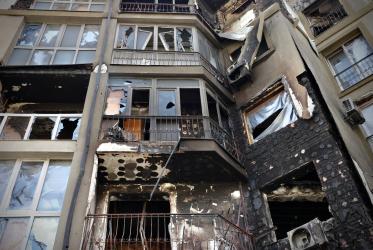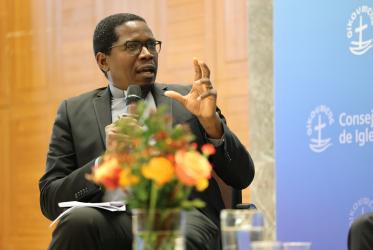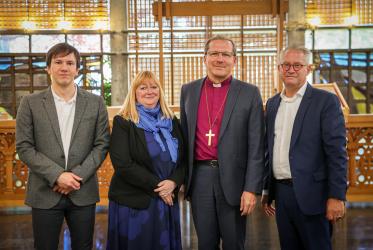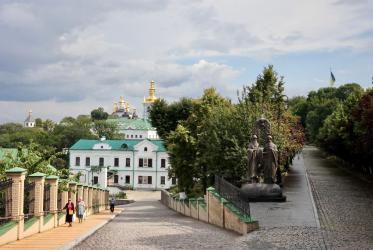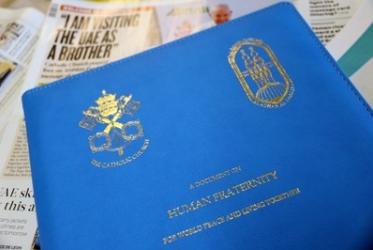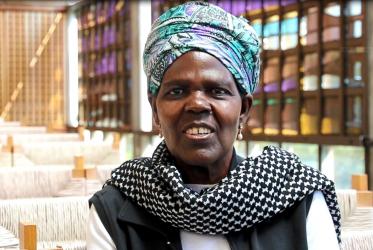Displaying 1 - 20 of 47
Swedish Mission Council hears WCC reflections on faith in democracy
07 February 2024
WCC hosts visitors from Finland, Germany, and Sweden
29 September 2023
Brazilian churches call for transformative racial justice
23 November 2020
Driven by God’s grace and a sense of duty
05 November 2020
WCC well-represented in Religions for Peace leadership
07 October 2019
WCC moderator “A call for equality in God’s house”
08 April 2019
Interfaith Rainforest Initiative expands
12 February 2019
#WCC70: Nathan Söderblom, ecumenical pioneer
29 August 2018
#WCC70: A story of life
07 June 2018
